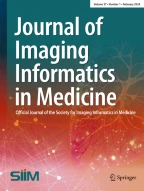Abstract
The transmission of patient and imaging data between imaging centers and other interested individuals is increasingly achieved by means of compact disc digital media (CD). These CDs typically contain, in addition to the patient images, a DICOM reader and information about the origin of the data. While equipment manufacturers attach disclaimers to these discs and specify the intended use of such media, they are often the only practical means of transmitting data for small medical, dental, or veterinary medical centers. Images transmitted by these means are used for clinical diagnosis. This has lead to a heavy reliance on the integrity of the data. This report describes attempts to alter significant patient and study data on CD media and their outcome. The results show that data files are extremely vulnerable to alteration, and alterations are not detectable without detailed analysis of file structure. No alterations to the DICOM readers were required to achieve this; changes were applied only to the data files. CDs with altered data can be readily prepared, and from the point of view of individuals viewing the images, function identically to the original manufacturer’s CD. Such media should be considered unsafe where there is a potential for financial or other gain to be had from altering the data, and the copy cannot be cross-checked with the original data.
Explore related subjects
Discover the latest articles, news and stories from top researchers in related subjects.References
Engelmann U, Schroeter A, Schwab M, Eisenmann U, Vetter M, Lorenz K, et al: Borderless teleradiology with CHILI. J Med Internet Res 1(2):E8, 1999 Oct–Dec
Bernarding J, Thiel A, Decker I, Grzesik A, Wolf KJ, Tolxdorff T: Prototype of a JAVA/DICOM image server with integrated findings and data security. Stud Health Technol Inform 77:865–869, 2000
Bernarding J, Thiel A, Grzesik A: A JAVA-based DICOM server with integration of clinical findings and DICOM-conform data encryption. Int J Med Inform 64(2–3):429–438, 2001 Dec
Schutze B, Kroll M, Filler TJ: A solution to add digital signatures to medical images according to the DICOM standard: embedded systems. Rofo 177(1):124–129, 2005 Jan
van Ooijen PM, Roosjen R, de Blecourt MJ, van Dam R, Broekema A, Oudkerk M: Evaluation of the use of CD-ROM upload into the PACS or institutional web server. J Digit Imaging 19 Suppl 1:72–77, 2006
Hacklander T, Martin J, Kleber K: Informatics in radiology (infoRAD): an open source framework for modification and communication of DICOM objects. Radiographics 25(6):1709–1721, 2005 Nov–Dec
McEvoy F, Rossdale PD, Wingfield Digby N, Lane JG: Caveat vendor: technology and prepurchase examinations of horses. Equine Vet J 30(4):274–276, 1998 Jul
Guneri P, Akdeniz BG: Fraudulent management of digital endodontic images. Int Endod J 37(3):214–220, 2004 Mar
Schutze B, Kroll M, Geisbe T, Filler TJ: Patient data security in the DICOM standard. Eur J Radiol 51(3):286–289, 2004 Sep
Queluz MP: Authentication of digital images and video: Generic models and a new contribution. Signal Processing: Image Communication 16(5):461–475, 2001/1
Alattar AM: Reversible watermark using the difference expansion of a generalized integer transform. IEEE Trans Image Process 13(8):1147–1156, 2004 Aug
Guo X, Zhuang TG: A Region-Based Lossless Watermarking Scheme for Enhancing Security of Medical Data. J Digit Imaging 2007 Jul 10 DOI 10.1007/s10278-007-9043-6
Author information
Authors and Affiliations
Corresponding author
Rights and permissions
About this article
Cite this article
McEvoy, F.J., Svalastoga, E. Security of Patient and Study Data Associated with DICOM Images when Transferred Using Compact Disc Media. J Digit Imaging 22, 65–70 (2009). https://doi.org/10.1007/s10278-007-9068-x
Received:
Revised:
Accepted:
Published:
Issue Date:
DOI: https://doi.org/10.1007/s10278-007-9068-x
